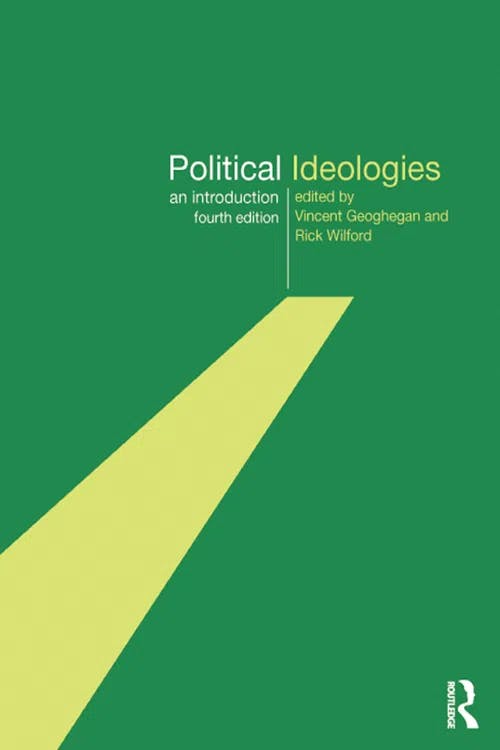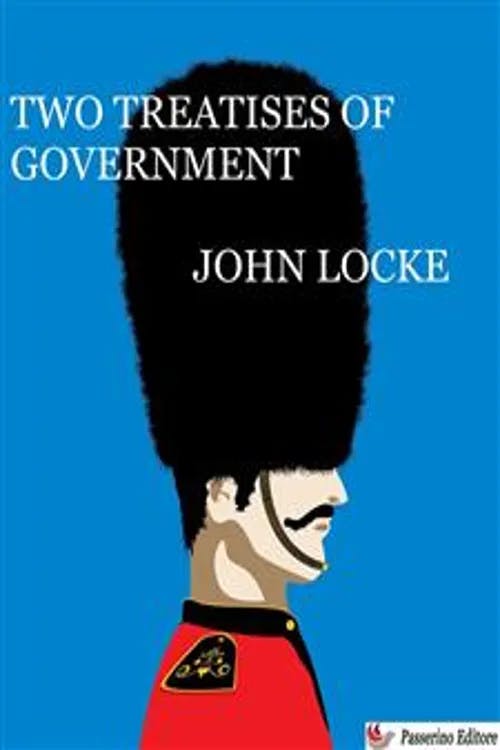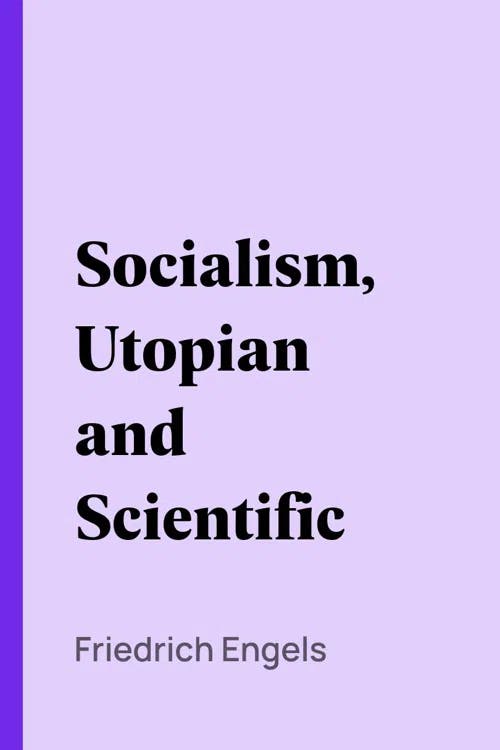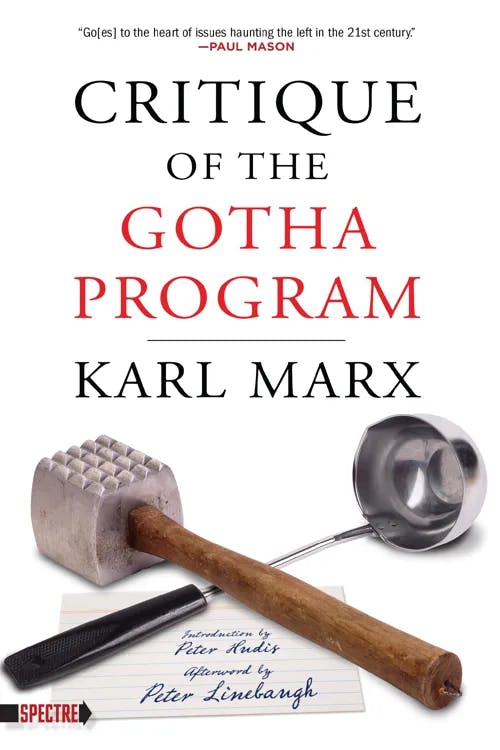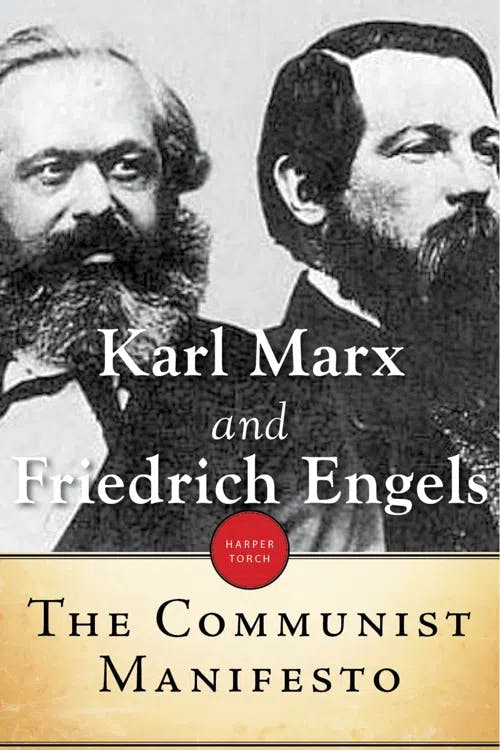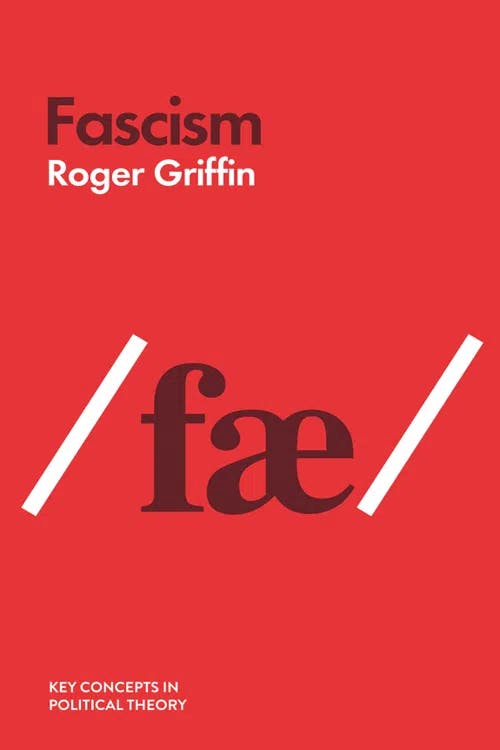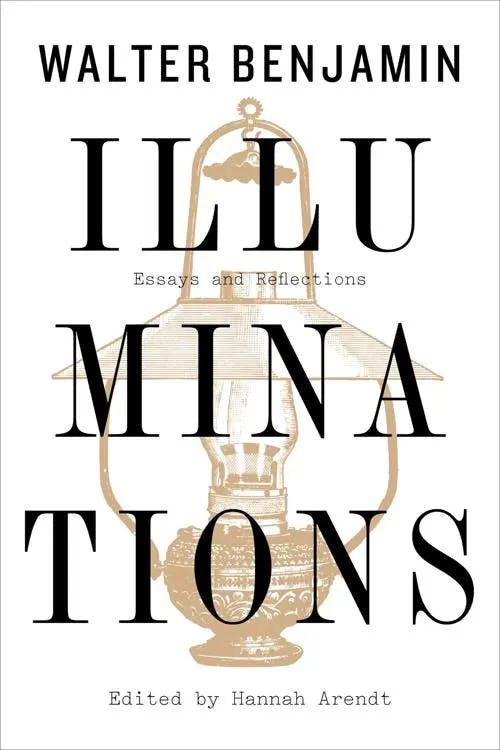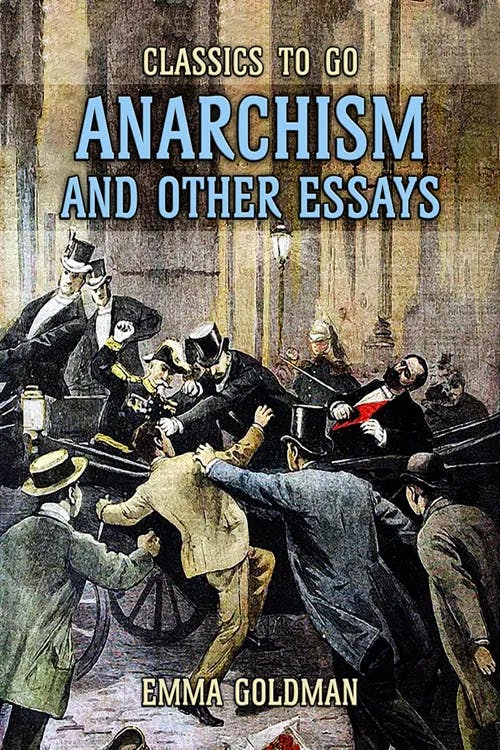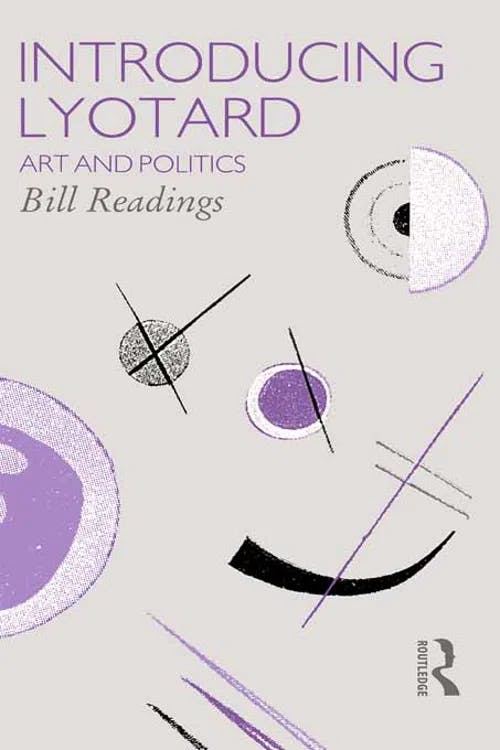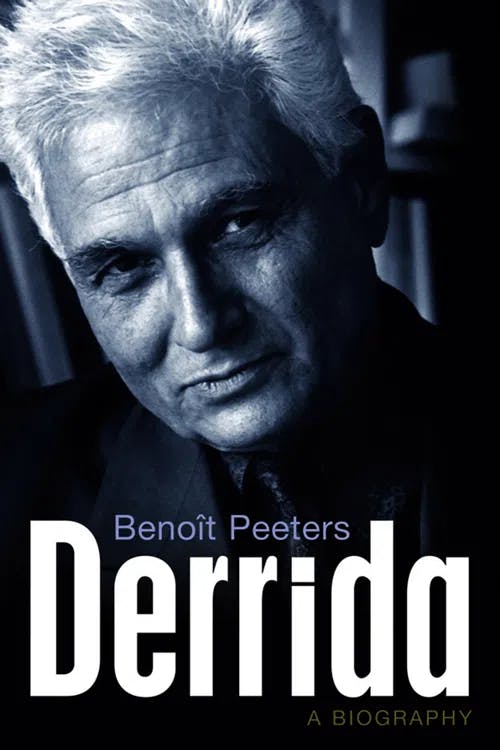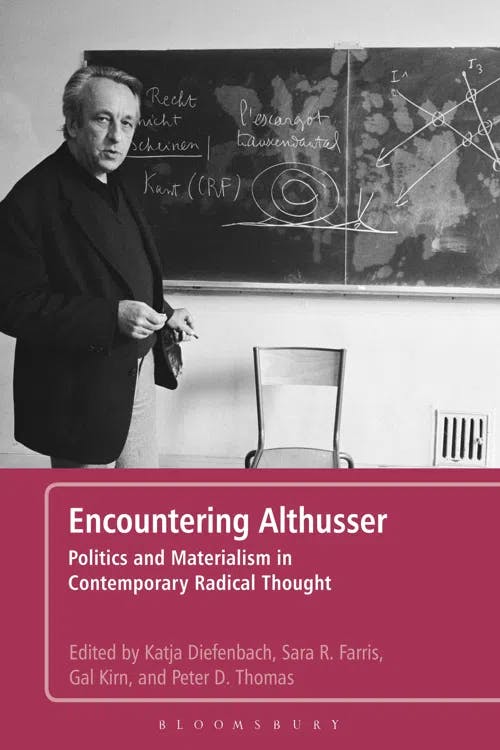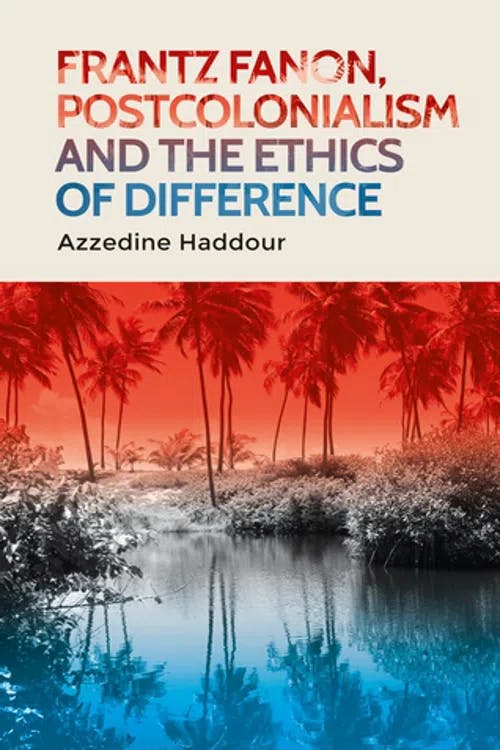What is Political Ideology?
MA, Sociology (Freie Universität Berlin)
Date Published: 08.06.2023,
Last Updated: 20.08.2024
Share this article
Defining political ideology
Political ideology is an umbrella term used to describe a wide spectrum of different viewpoints on theories of power, the ideal way that society should be organized, and which means are acceptable for achieving these ends. As Iain MacKenzie elaborates in the anthology, Political Ideologies,
While providing a description of social reality, ideologies also embody a set of political ideals aimed at detailing the best possible form of social organisation. Along with a map of reality comes a set of norms about how we should behave politically: a map that is at its most striking when these norms cohere into a full-blown picture of an ideal society. (MacKenzie, 2014)
Edited by Vincent Geoghegan and Rick Wilford
While providing a description of social reality, ideologies also embody a set of political ideals aimed at detailing the best possible form of social organisation. Along with a map of reality comes a set of norms about how we should behave politically: a map that is at its most striking when these norms cohere into a full-blown picture of an ideal society. (MacKenzie, 2014)
As you might expect, the gulf between the ideals that a political ideology represents and the actions that are taken in its name is also a topic of interest to scholars of political ideology.
In fact, these questions have persisted for millennia, as evidenced in the works of Plato’s The Republic (c. 375 BCE), and Aristotle’s Politics (c. 335 BCE). It also was a topic of significant focus during the Enlightenment as philosophers like Jean-Jacques Rousseau, Voltaire, and John Locke sought political ideologies that better encapsulated ideals of secularism, liberty, and individualism. Political ideology also experienced a resurgence of focus during the 20th century as the liberalism that emerged from the Enlightenment was challenged by conflicting ideologies — namely communism and fascism — resulting in unprecedented global conflicts.
Still, political ideology remains an elusive concept, and it’s useful to take the time to understand the trappings of the ideologies mentioned above. From there, we can better understand how they come into conflict with each other; the contrasts that often exist between political ideals and realities; and finally, some of the major critiques of political ideology as a framework.
List of political ideologies
1.) Liberalism
Liberalism is a political ideology that emerged out of the Enlightenment. It is associated with a challenge to preordained claims to political power, such as the divine right of kings, in favor of secularism and the rise of parliamentarism. Liberalism is also defined by a strong emphasis on individual rights, personal freedoms, universal equality before the law, and a limited role of government intervention in other spheres of life such as the economy. John Locke is considered the father of liberalism, as encapsulated in his writings on the social contract. In her introduction to Locke's Two Treatises of Government (1689 [2014]), Federica Rainaldi explains that
Locke’s contract is a pact amongst equal men, which creates a body politic through the transfer of every man’s natural rights. […] the natural rights to life, freedom and property become civil and political rights that the positive law of the commonwealth should guarantee. Political society is created with the specific aim of better protecting men’s natural rights through universal and impartial laws. (Rainaldi, 2014)
John Locke
Locke’s contract is a pact amongst equal men, which creates a body politic through the transfer of every man’s natural rights. […] the natural rights to life, freedom and property become civil and political rights that the positive law of the commonwealth should guarantee. Political society is created with the specific aim of better protecting men’s natural rights through universal and impartial laws. (Rainaldi, 2014)
The notion of universal entitlements to these political rights became a rallying cry that spread across the world — inspiring a number of well known political revolutions including the Glorious Revolution in England in 1688, the American Revolution in 1776, the French Revolution in 1789, and the Haitian Revolution in 1791.
Subsequently, this kind of Republicanism — predicated on liberal ideals, constitutionalism, and representative democracy — was instituted in many other countries including formerly colonized nations in Africa and Latin America during the 19th and 20th centuries. In fact, liberalism is considered the dominant political ideology of modernity. Liberalism is notably compatible with market economies, as it is concerned with the protection of property rights and a laissez-faire approach to government intervention in matters of the economy. In the late 20th century, the tenets of liberalism also inspired the project of neoliberalism, which represents a more market fundamentalist iteration of liberalism focused on the primacy of the free market and privatization.
2.) Socialism & communism
While considered the dominant ideology of modernity, liberalism has had some notorious opponents. Particularly in the 19th and 20th centuries, one such challenge came in the form of the leftwing political ideologies of communism and socialism. Socialism and communism are often — erroneously — used interchangeably, which alludes to some of the murkiness around concepts of political ideology. Largely thanks to the Cold War, there has also been further muddling of these terms’ actual meanings. Let’s start by sketching out the commonalities between the two and then how they differ from each other.
Both socialism and communism are associated with the works of Karl Marx and Friedrich Engels. Their works challenged certain aspects of liberalism, particularly its emphasis on upholding rights to private property and the primacy of the free market. As Engels contends,
The modern State, no matter what its form, is essentially a capitalist machine, the state of the capitalists, the ideal personification of the total national capital. The more it proceeds to the taking over of productive forces, the more does it actually become the national capitalist, the more citizens does it exploit. (1880 [2012])
Friedrich Engels
The modern State, no matter what its form, is essentially a capitalist machine, the state of the capitalists, the ideal personification of the total national capital. The more it proceeds to the taking over of productive forces, the more does it actually become the national capitalist, the more citizens does it exploit. (1880 [2012])
Marx and Engels argued, therefore, that liberalism was biased towards the bourgeois class who owned the means of production, and therefore, held the power in society. The notion of society being divided into classes who are embroiled in struggle against each other is a central pillar of socialist and communist political ideology, but each seeks to remedy this in different ways.
3.) Socialism
Social democracy
While critical of the centrality of private property and market relations, socialism is not necessarily entirely incompatible with liberalism. Such is evidenced in the social democracies of the Nordic countries. These still operate via market economies and parliamentary democracies, but also have policies in place to better balance the interests of the bourgeois capitalist class and working class. Socialists, in general, seek to better leverage the interests of the working class through unions with strong powers of collective bargaining, nationalization of public services such as healthcare, and high rates of taxation on the wealthy. A distinctive feature of such approaches to socialism is the use of existing democratic processes and the state apparatus as a way to actualize this balance of interests between capital and labor. Unlike communism, these forms of socialism are not in favor of forceful revolution.
Revolutionary socialism
Compared to social democracy, revolutionary socialism is a substantially different approach which offers a bridge between socialism and communism. More specifically, revolutionary socialism refers to a kind of transitory socialism wherein the workers seize control of political power via revolution and use the existing state infrastructures to redistribute wealth and property to the people in a movement towards a truly communist society. In Critique of the Gotha Program, Marx describes this transition phase ushered in through revolutionary socialism as the “dictatorship of the proletariat” (1891 [2022]). As Peter Hudis explains in his introduction,
The Critique clearly defines the “revolutionary dictatorship of the proletariat” as a political transitional period between capitalism and the new society. [...] The term “dictatorship” is somewhat misleading, since Marx did not mean a dictatorship of a party or group lording it over the masses. At the time he wrote the Critique, the term referred to the mass of the oppressed dictating their will against the old ruling classes. (Hudis, 2022)
Karl Marx
The Critique clearly defines the “revolutionary dictatorship of the proletariat” as a political transitional period between capitalism and the new society. [...] The term “dictatorship” is somewhat misleading, since Marx did not mean a dictatorship of a party or group lording it over the masses. At the time he wrote the Critique, the term referred to the mass of the oppressed dictating their will against the old ruling classes. (Hudis, 2022)
Revolutionary socialism is exemplified by the Bolsheviks who overthrew the Russian Czar in 1917 and established a dictatorship of the proletariat — through which they attempted to redistribute wealth back to the people in order to transition towards communism.
(To read about socialism in more depth, you can explore our “What is Socialism?” study guide.)
4.) Communism
While socialism can coexist alongside other ideologies such as liberalism, and can jointly make up a given political structure, communism describes the overthrow of all private property relations and the establishment of a truly classless, stateless, and propertyless society. As Marx and Engels put it in The Communist Manifesto,
The distinguishing feature of Communism is not the abolition of property generally, but the abolition of bourgeois property. But modern bourgeois private property is the final and most complete expression of the system of producing and appropriating products, that is based on class antagonisms, on the exploitation of the many by the few. In this sense, the theory of the Communists may be summed up in the single sentence: Abolition of private property. (1848 [2014])
Karl Marx and Friedrich Engels
The distinguishing feature of Communism is not the abolition of property generally, but the abolition of bourgeois property. But modern bourgeois private property is the final and most complete expression of the system of producing and appropriating products, that is based on class antagonisms, on the exploitation of the many by the few. In this sense, the theory of the Communists may be summed up in the single sentence: Abolition of private property. (1848 [2014])
Instead of bourgeois forms of private property relations, under communism all members of society collectively own the means of production. Decisions pertaining to the use and allocation of wealth and resources are subject to direct-democratic control. Revisiting the example of the Bolsheviks, this was reflected in the creation of soviets, which refer to councils or worker assemblies who came together to make decisions through this kind of participant democracy.
Of course, this definition of "soviet" is overshadowed by the actual realities of the Soviet Union, which offer some key observations about the nature of political ideology.
While the Soviet Union is one of the societies most strongly associated with communism, many scholars have argued that no society has ever truly achieved communism in the pure sense of the term as outlined above. It is argued, for example, that the Soviet Union’s so-called dictatorship of the proletariat was corrupted before it could effectively redistribute all the wealth and property back to the people. Instead of the eventual abolition of the state, under Stalin the state became larger, as it merely subsumed the capitalist class. In other words, it is argued that the “dictatorship of the proletariat” just became a dictatorship full stop, and the transition towards communism never fully occurred. Rather, dictators such as Joseph Stalin, as well as others like Mao Zedong in China, committed many atrocities in the name of communism — ranging from the widespread torture and imprisonment of dissidents to ethnic cleansing. This offers one example of how a political ideology does not necessarily align with the actual realities of a given society that claims it.
(For more information on communism, you can read our “What is Communism?” study guide.)
5.) Fascism
Fascism is a notoriously difficult political ideology to pin down, as it is often used in contemporary political lexicon to describe any draconian, right-wing political maneuver. As political theorist Roger Griffin observes,
not only is it impossible simply to state ‘what fascism is’ but, a century after the word came into being to refer to a new Italian political movement and programme, its definition as a term of political and historical analysis is still bewilderingly varied and hotly debated. (2018)
Roger Griffin
not only is it impossible simply to state ‘what fascism is’ but, a century after the word came into being to refer to a new Italian political movement and programme, its definition as a term of political and historical analysis is still bewilderingly varied and hotly debated. (2018)
Therefore, rather than being a standalone political theory, it is often easier to understand fascism as a description of certain historical examples: Nazi Germany and Fascist Italy. This way, we can ascertain some of its defining characteristics.
Right-wing nationalism: In both Italy and Germany, fascism proposed staunch forms of nationalism. In each context this nationalism was centered on a kind of mythology around the origins of each civilization. In Italy, there was a revival of and fixation on the Roman Empire, and in Germany, on the ethnic supremacy of the so-called Aryan race. These forms of nationalism were also predicated on the exclusion of outsiders, and expressed through drives towards territorial expansionism.
Military dictatorship: Fascist Italy and Nazi Germany were both structured around totalitarian dictatorships headed by “strongman” leaders — Mussolini and Hitler, respectively — who were shrouded in a cult of personality. The use of force in the suppression of dissent was commonplace and even valorized. Martial law was imposed through propaganda in both contexts. New military units were formed in each country to reflect this: the Blackshirts in Italy and, among others, the SS in Germany.
Social Darwinism: In both contexts, there was no tolerance for weakness. Strength, hierarchy, discipline, and competition were glorified as ideals. Infamously, this played out in horrific forms of ethnic cleansing in Nazi Germany, with targeted groups including Jews, Roma, Sinti, and Poles. Homosexuals and disabled people were also persecuted. Jews, Slavs, Ethiopians, and Romani people also experienced discrimination under Fascist Italy.
Cult of mysticism: Finally, as encapsulated in Walter Benjamin's famous assertion,
Fascism is the introduction of aesthetics into political life. The violation of the masses, whom Fascism, with its Führer cult, forces to their knees, has its counterpart in the violation of an apparatus which is pressed into the production of ritual values. (1968)
Walter Benjamin
Fascism is the introduction of aesthetics into political life. The violation of the masses, whom Fascism, with its Führer cult, forces to their knees, has its counterpart in the violation of an apparatus which is pressed into the production of ritual values. (1968)
Indeed, many scholars argue that much of fascism’s widespread appeal in both Italy and Germany can be explained by the cult of pseudo-religious mysticism which was derived from the aforementioned characteristics. Fascism effectively created rituals in the forms of massive parades and rallies; martyrization of fallen “heroes;” mythology around innate ethnic or civilizational superiority; visual aesthetics such as banners, signets, and uniforms; and also in the cults of personality that existed around each regime’s leader. These forms of propaganda and the aestheticization of politics were instrumental in the popularization of fascism in both countries.
While Nazi Germany and Fascist Italy offer quintessential descriptive examples of fascism, many of these same characteristics have also been exhibited by other societies. These include but are certainly not limited to military dictatorships in Spain under Francisco Franco, Portugal under António de Oliveira Salazar, and (many argue) in Chile under Augusto Pinochet.
(To explore the ideology of fascism in more detail, you can read our “What is Fascism?” study guide.)
6.) Anarchism
Anarchism is widely considered to have emerged as a political theory in Russia around the time of the Bolshevik Revolution. While those holding anarchist beliefs were supporters of the revolution, they differed ideologically from the socialists of the day. For example, key anarchist figures such as Mikhail Bakunin and Peter Kropotkin opposed the idea of the state as a vessel for redistributing wealth and power to the people. Rather, they believed that all forms of statehood were corruptible and oppressive. Instead, anarchists center human freedom, autonomy, and sovereignty above all — qualities which they believe cannot be fully expressed under any state apparatus. As a seminal anarchist figure, Emma Goldman articulates the ideology in Anarchism and Other Essays (1910 [2022]),
Anarchism is the great liberator of man from the phantoms that have held him captive [...]. To accomplish that unity, Anarchism has declared war on the pernicious influences which have so far prevented the harmonious blending of individual and social instincts, the individual and society.
Religion, the dominion of the human mind; Property, the dominion of human needs; and Government, the dominion of human conduct, represent the stronghold of man's enslavement and all the horrors it entails.
Emma Goldman
Anarchism is the great liberator of man from the phantoms that have held him captive [...]. To accomplish that unity, Anarchism has declared war on the pernicious influences which have so far prevented the harmonious blending of individual and social instincts, the individual and society.
Religion, the dominion of the human mind; Property, the dominion of human needs; and Government, the dominion of human conduct, represent the stronghold of man's enslavement and all the horrors it entails.
In other words, anarchists believe that no forms of authority or hierarchy ought to exist, unless they can be justified in a given context. For example, most anarchists would not contest having an experienced heart surgeon perform a triple bypass over someone with no medical experience.
In practice, anarchists are known for their use of “direct action” as a way of bringing about glimpses of what social relations could look and feel like without dominance by the state. They use methods such as protests, occupations, strikes, property damage, and sabotage to disrupt and subvert political power. Anarchists also prioritize various forms of popular consensus in decision making, where all votes and perspectives are treated equally. They typically favor decentralized and DIY forms of organization and provisioning of goods and resources.
It should also be noted that there are two distinct types of anarchists: anarcho-communists and libertarian anarchists. While both share a common vision for a stateless society, the former believe that goods and resources should be owned collectively and the latter places emphasis on preserving individual liberties. Although no country has ever been totally anarchist, these aspects of anarchist praxis can be found in many subcultures such as the punk movement, as well as in indigenous land sovereignty movement of the Zapatistas in the Mexican state of Chiapas. Ursula Le Guin’s work of speculative fiction, The Dispossessed (1974), also offers a vivid portrayal of what an anarchist society could look like.
Critiques of political ideology
There are numerous critiques leveraged against political ideology as a conceptual framework. Three of the most prominent ones can be found in postmodernism, postcolonialism, and even in the writings of certain Marxist philosophers. While not an exhaustive rendering of all critiques of political ideology, the following offer some sound points of contention that expose some of its shortcomings.
Postmodernist critiques of political ideology
As part of a movement that emerged out of the fragmentation and disillusionment in the decades following WWII, postmodern thinkers such as Jean-Francois Lyotard argue against the utility of grand metanarratives, including political ideologies. As Bill Readings puts it in Introducing Lyotard,
Grand narratives claim to totalize the field of narrative so as to organize the succession of historical moments in terms of the projected revelation of a meaning. They thus offer to suppress all differends, to translate all narratives into themselves without loss, to make everything speak their language. (2006)
Bill Readings
Grand narratives claim to totalize the field of narrative so as to organize the succession of historical moments in terms of the projected revelation of a meaning. They thus offer to suppress all differends, to translate all narratives into themselves without loss, to make everything speak their language. (2006)
Lyotard argues that these totalizing narratives eclipse the multiplicity of different lived experiences, and flatten the complexity of the human condition in unrealistic ways that especially neglect minority perspectives.
Other postmodern theorists like Jacques Derrida have made criticisms of political ideology as a way of classifying different viewpoints. Of ideology, he made the following critique,
The fact that ‘fundamental’ questions or questions about foundations, about its own premises, its very axiomatics, were not being asked [. . .], this was something that I saw as a lack of radicalness and a still too dogmatic contribution to its own discourse, and this could not be without political consequences in the short or long term. [. . .] Their concepts were not sophisticated, differentiated enough, and there’s a price to be paid for that. (Derrida, cited by Peeters in Derrida, 2013)
Benoît Peeters
The fact that ‘fundamental’ questions or questions about foundations, about its own premises, its very axiomatics, were not being asked [. . .], this was something that I saw as a lack of radicalness and a still too dogmatic contribution to its own discourse, and this could not be without political consequences in the short or long term. [. . .] Their concepts were not sophisticated, differentiated enough, and there’s a price to be paid for that. (Derrida, cited by Peeters in Derrida, 2013)
Specifically, as a member of the post-structuralist movement, he analyzed the inherent contradictions and discrepancies that can exist under a given political ideology such as liberalism. For example, he points out that even though liberalism purports to be about ideals of universal rights and freedoms for all citizens, in actuality societies that espouse liberalism are often hierarchical and discriminatory. He also questions how political ideologies are delineated to form uniform categories of beliefs when those who subscribe to a given ideology often hold quite disparate viewpoints.
Marxist critiques of political ideology
Marxist philosophers such as Louis Althusser have made materialist criticisms of political ideology. As he famously observes,
Ideology represents the imaginary relation of individuals to their real conditions of existence (Althusser, cited by Ozren Pupovac in Encountering Althusser, 2013)
Edited by Katja Diefenbach, Sara R. Farris, Gal Kirn, and Peter D. Thomas
Ideology represents the imaginary relation of individuals to their real conditions of existence (Althusser, cited by Ozren Pupovac in Encountering Althusser, 2013)
Specifically, Marxist critics of political ideology such as Althusser argue that the ideologies put forth by a given society often serve to mask the actual social relations between classes. In capitalist societies, for example, the primary function of ideologies is to obscure the centrality of the market as the primary driving force shaping the social landscape.
Writers like Antonio Gramsci use the analogy of the base-superstructure to make a similar point that the base of society is the market economy, which is the engine that propels it forward. The superstructure which includes ideology, politics, and culture merely stem from it, and often serve the function of masking the true material conditions that underpin social relations within a classed society. These ideas are especially prominent in the discipline of political economy.
Postcolonial critiques of political ideology
Postcolonial theorists such as Frantz Fanon and Edward Said also mount criticisms against the Eurocentric nature of political ideology. Indeed, many of (what are considered to be) the most prominent examples of political ideology are focused on European contexts, which exclude the ways these ideologies manifest — and have been imposed through colonialism — in the rest of the world.
Fanon goes on to argue that the tendency to merely implement Eurocentric political ideologies — the ideologies of colonizers — in postcolonial contexts is antithetical to true liberation from colonial domination. He writes,
A bourgeoisie similar to that which developed in Europe is able to elaborate an ideology and at the same time strengthen its own power. [...] In under-developed countries, we have seen that no true bourgeoisie exists; there is only a sort of little greedy caste, avid and voracious, with the mind of a huckster, only too glad to accept the dividends that the former colonial power hands out to it. This get-rich-quick middle class shows itself incapable of great ideas or of inventiveness. It remembers what it has read in European textbooks and imperceptibly it becomes not even the replica of Europe, but its caricature. (Fanon, cited by Haddour in Frantz Fanon, postcolonialism and the ethics of difference, 2019)
Azzedine Haddour
A bourgeoisie similar to that which developed in Europe is able to elaborate an ideology and at the same time strengthen its own power. [...] In under-developed countries, we have seen that no true bourgeoisie exists; there is only a sort of little greedy caste, avid and voracious, with the mind of a huckster, only too glad to accept the dividends that the former colonial power hands out to it. This get-rich-quick middle class shows itself incapable of great ideas or of inventiveness. It remembers what it has read in European textbooks and imperceptibly it becomes not even the replica of Europe, but its caricature. (Fanon, cited by Haddour in Frantz Fanon, postcolonialism and the ethics of difference, 2019)
Furthermore, scholars of postcolonialism contend that a Eurocentric perspective of ideology can undermine and overlook the myriad other forms of social formations that can and have existed throughout history — namely those that exist in indigenous societies. A postcolonial lens on political ideology, therefore, seeks to center and learn from these examples. This is illustrated, for example, in the concept of “buen vivir,” which describes a Quechua way of life that emphasizes harmony with nature and prioritizes quality of life for all living things as the basis of resistance against capitalism.
Closing thoughts
Political ideologies describe a broad spectrum of different viewpoints on how society ought to be structured and which practices are best for getting there. This study guide offered an overview of a few prominent examples: liberalism, socialism, communism, fascism, and anarchism. Crucially, in the case of each political ideology discussed above, their definitions do not necessarily align with how these terms are used in practice and ascribed to different societies throughout history.
A critique has also been made of political ideology as a conceptual framework, as the terms are themselves used toward political — and even propagandistic — ends. Critics also argue that the concept of political ideology cannot adequately encapsulate all the different viewpoints and beliefs of those who claim to adhere to a given one. Still, having an understanding of political theory is useful not only as an intellectual exercise, but also in order to be a critically engaged citizen. For all its valid criticisms, in having a sound working knowledge of different political ideologies you will be better able to interpret current events, recognize when terms are being used in line with a political agenda, and maintain a sense of clarity in an increasingly polarized world.
Further reading on Perlego
Connolly, W. (2017). Political Science and Ideology. Routledge. Available at: https://www.perlego.com/book/1575821/political-science-and-ideology-pdf
Edgley, A. (2004). The Social and Political Thought of Noam Chomsky. Routledge. Available at: https://www.perlego.com/book/1623906/the-social-and-political-thought-of-noam-chomsky-pdf
Goldmann, L. (2009). The Philosophy of the Enlightenment. Routledge. Available at: https://www.perlego.com/book/1695805/the-philosophy-of-the-enlightenment-routledge-revivals-the-christian-burgess-and-the-enlightenment-pdf
Hayden, P. (2014). Hannah Arendt: Key Concepts. Routledge. Available at: https://www.perlego.com/book/1562062/hannah-arendt-key-concepts-pdf
Jameson, F. (2014). The Political Unconscious. Cornell University Press. Available at: https://www.perlego.com/book/534073/the-political-unconscious-narrative-as-a-socially-symbolic-act-pdf
Marx, K, and Engels, F. (2021). Collected Works of Karl Marx and Friedrich Engels. Strelbytskyy Multimedia Publishing. Available at: https://www.perlego.com/book/2982724/collected-works-of-karl-marx-and-friedrich-engels-illustrated-the-communist-manifesto-the-capital-the-eighteenth-brumaire-of-louis-bonaparte-socialism-utopian-and-scientific-pdf
Political ideology FAQs
What is political ideology in simple terms?
What is political ideology in simple terms?
What is an example of a political ideology?
What is an example of a political ideology?
Who are scholars associated with political ideology?
Who are scholars associated with political ideology?
Bibliography
Aristotle (2013). Politics. University of Chicago Press. Available at: https://www.perlego.com/book/1840578/aristotles-politics-second-edition-pdf
Benjamin, W. (1968). Illuminations. Houghton Mifflin Harcourt. Available at: https://www.perlego.com/book/2418924/illuminations-essays-and-reflections-pdf
Diefenbach, et al. (eds.) (2013). Encountering Althusser. Bloomsbury Academic. Available at: https://www.perlego.com/book/818021/encountering-althusser-politics-and-materialism-in-contemporary-radical-thought-pdf
Engels, F. (2012). Socialism: Utopian and Scientific. Perlego. Available at: https://www.perlego.com/book/1820308/socialism-utopian-and-scientific-pdf
Geoghegan, V. and Wilford, R. (eds.) (2014). Political Ideologies. Routledge. Available at: https://www.perlego.com/book/1323782/political-ideologies-an-introduction-pdf
Goldman, E. (2022) Anarchism and Other Essays. Otbebookpublishing. Available at: https://www.perlego.com/book/3791014/anarchism-and-other-essays-pdf
Griffin, R. (2018). Fascism. Polity. Available at: https://www.perlego.com/book/1536550/fascism-pdf
Haddour, A. (2019). Frantz Fanon, postcolonialism and the ethics of difference. Manchester University Press. Available at: https://www.perlego.com/book/1525739/frantz-fanon-postcolonialism-and-the-ethics-of-difference-pdf
Hoare, G. and Sperber, N. (2015) An Introduction to Antonio Gramsci. Bloomsbury Publishing. Available at: https://www.perlego.com/book/807560/an-introduction-to-antonio-gramsci-his-life-thought-and-legacy-pdf
Le Guin, U. (1974). The Dispossessed. Harper & Row.
Locke, J. (2014). Two Treatises of Government. Passerino. Available at:
https://www.perlego.com/book/2099897/two-treatises-of-government-pdf
Marx, K. (2022). Critique of the Gotha Program. PM Press. Available at: https://www.perlego.com/book/2490029/critique-of-the-gotha-program-pdf
Marx, K. and Engels F. (2014) Communist Manifesto. HarperTorch. Available at: https://www.perlego.com/book/602671/the-communist-manifesto-pdf
Peeters, B. (2013). Derrida. Polity. Available at: https://www.perlego.com/book/1535408/derrida-a-biography-pdf
Plato (2014). The Republic. Open Road Media. Available at: https://www.perlego.com/book/2393161/the-republic-pdf
Proudhon, et al. (2023). Anarchism. The Classic Collection (10 books). Illustrated. Strelbytskyy Multimedia Publishing. Available at: https://www.perlego.com/book/4143083/anarchism-the-classic-collection-10-books-illustrated-what-is-property-god-and-the-state-the-conquest-of-bread-no-treason-state-socialism-and-anarchism-and-others-pdf
Readings, B. (2006). Introducing Lyotard. Routledge. Available at: https://www.perlego.com/book/1625489/introducing-lyotard-art-and-politics-pdf
MA, Sociology (Freie Universität Berlin)
Lily Cichanowicz has a master's degree in Sociology from Freie Universität Berlin and a dual bachelor's degree from Cornell University in Sociology and International Development. Her research interests include political economy, labor, and social movements. Her master's thesis focused on the labor shortages in the food service industry following the Covid-19 pandemic.

